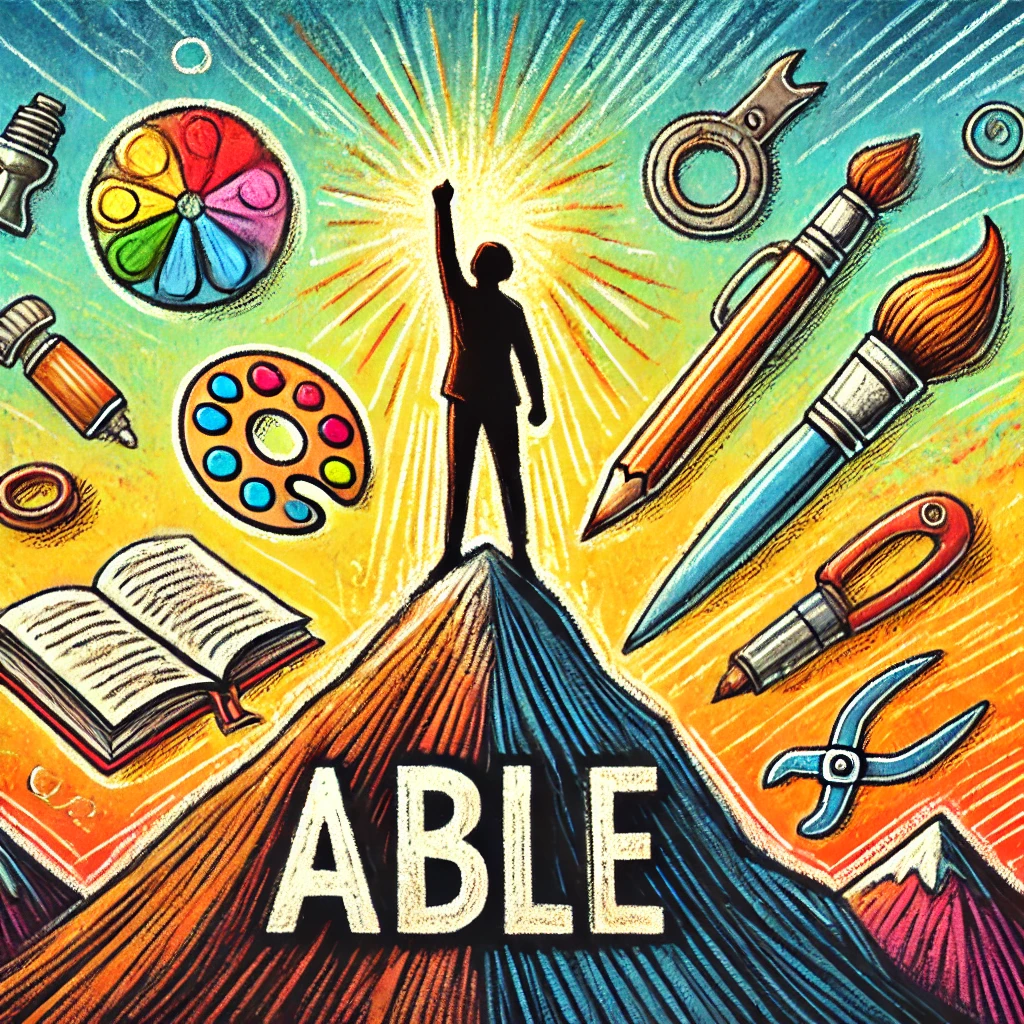Able
Definition
Able is an adjective that describes someone who has the capability, skill, or power to do something. It can also refer to someone who is competent or talented in a particular area.
Parts of Speech
- Adjective
Pronunciation
American English
- IPA Pronunciation: /ˈeɪbəl/
- Respelling: AY-buhl
British English
- IPA Pronunciation: /ˈeɪbəl/
- Respelling: AY-buhl
Etymology
The word "able" originates from the Latin term "habilis," meaning "easily handled or apt," which evolved through Old French as "able." It entered Middle English in the 14th century, initially referring to physical strength or fitness.
Derivatives
- Ability (noun)
- Enable (verb)
- Capable (adjective)
- Disable (verb)
- Ably (adverb)
Synonyms
- Capable
- Competent
- Skilled
Antonyms
- Incapable
- Incompetent
- Unable
Usage
The adjective "able" is often used to describe individuals who are competent or skilled in a particular area or have the power to perform a specific action. For example, "She is able to solve complex problems quickly," or "He is an able leader."
Related Terms
- Ability: The power or capacity to perform a task or function.
- Capability: The quality of being able to do something; potential.
- Proficiency: A high level of skill or competence in a particular area.
Detailed Definitions
Adjective
- Having the power, skill, or means to do something: Refers to the capability or competence to perform an action.
- Example: "He is able to complete the project independently."
- Skilled or talented in a particular area: Describes someone who is competent or proficient.
- Example: "She is an able negotiator."
able



🇨🇳 Mandarin
- 能夠 (can, able to)
- IPA: /néng gòu/
- Respelling: néng gòu
🇮🇳 Hindi
- सकना (can, to be able to)
- IPA: /səkˈnaː/
- Respelling: saknaa
🇪🇸 Spanish
- Poder (can, to be able to)
- IPA: /ˈpo.ðeɾ/
- Respelling: po-der
🇫🇷 French
- Pouvoir (can, to be able to)
- IPA: /pu.vwaʁ/
- Respelling: pu-vwar
🇦🇪 Modern Standard Arabic
- قادر على (able to)
- IPA: /ˈqaːdɪr ˈʕalaː/
- Respelling: qaadir 'alaa
🇧🇩 Bengali
- সক্ষম (able)
- IPA: /ʃɔkʃɔm/
- Respelling: shokshom
🇷🇺 Russian
- Мочь (can, to be able to)
- IPA: /mot͡ɕ/
- Respelling: moch
🇵🇹 Portuguese
- Poder (can, to be able to)
- IPA: /puˈðɛɾ/
- Respelling: pu-der
🇮🇩 Indonesian
- Dapat (can, to be able to)
- IPA: /da'pat/
- Respelling: da-pat
🇩🇪 German
- Können (can, to be able to)
- IPA: /ˈkœ.nən/
- Respelling: können
🇯🇵 Japanese
- できる (can, to be able to)
- IPA: /de.ki.ɾʉ̥/
- Respelling: de-ki-ru
🇻🇳 Vietnamese
- Có thể (can, to be able to)
- IPA: /kɔ˨˩ tʰe˧˩/
- Respelling: có thể
🇰🇷 Korean
- 할 수 있다 (can, to be able to)
- IPA: /hal su it̚ta/
- Respelling: hal su it-da
🇹🇷 Turkish
- Yapabilmek (can, to be able to)
- IPA: /ja.paˈbil.mek/
- Respelling: ya-pa-bil-mek
🇵🇰 Urdu
- کر سکنا (can, to be able to)
- IPA: /kəɾ səkˈnaː/
- Respelling: kar saknaa





